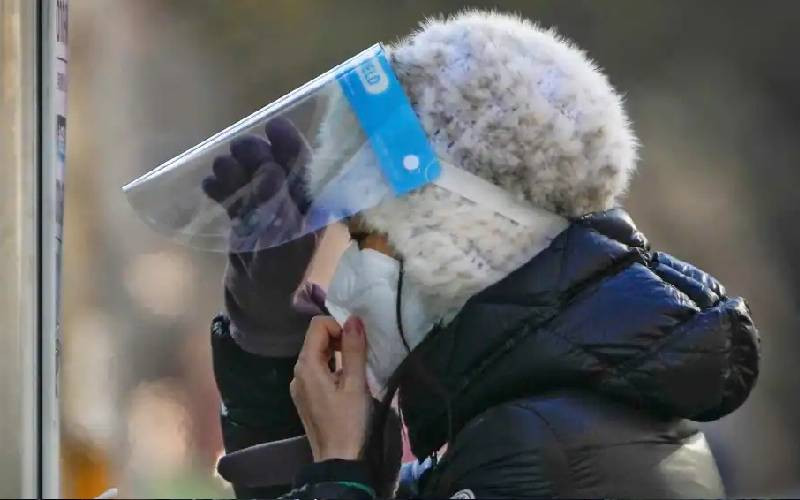
Days after protesters took to the streets of China over Beijing's strict "zero-Covid" policy, experts say the government may soon face bigger Covid-19 containment challenges than those that came with three years of locking down entire cities.
On Thursday morning, China's State Health Administration reported a record number of locally transmitted infections: 43,218 cases. The surge in reported cases came just one day after the central government issued 10 "new measures," loosening almost every zero-Covid control.
The wide-ranging new measures permit people with mild or no symptoms and their close contacts to isolate at home instead of being forcibly shipped to government quarantine facilities.
Officials will no longer be allowed to designate entire residential districts as "high-risk" zones. Health codes and negative Covid tests are no longer mandatory to enter indoor venues, except for so-called "special places" such as nursing homes, hospitals, kindergartens and schools.
"China's unplanned exit strategy is a formula for causing mass hospitalizations and deaths, which are preventable," Lawrence Gostin, director of the World Health Organization Collaborating Center on National and Global Health Law, told VOA Mandarin in an email interview.
He said the three years under the zero-Covid policy has resulted in low natural immunity and inadequate administration of vaccine boosters. These factors, combined with the highly transmissible omicron variant of the virus, could lead to a spike in hospitalizations and deaths, especially among the elderly and those with chronic diseases.
"China should have been anticipating its gradual exit many months ago. A much more coherent strategy would be to gradually lift the exit strategy in a coordinated and planned way," Gostin said. "Overall, this is a major stain on President Xi's reputation for efficiency and professionalism."
The zero-Covid policy has been Chinese leader Xi Jinping's signature defense against COVID since the first widespread outbreak in January 2020 in Wuhan.
'Beyond reproach'
Before China eased its zero-Covid policy, it claimed to have had only 5,235 deaths in a country of 1.4 billion people since the first recorded case in humans in December 2019. By comparison, 1,083,000 died in the United States as of Wednesday, according to the Johns Hopkins University of Medicine Coronavirus Resource Center. There are 333.3 million people in the U.S. as of Wednesday, according to the U.S. Census Bureau Population Clock.
Zhao Lijian, Foreign Ministry spokesperson, told foreign journalists last December that China's pandemic control was beyond reproach. "The Chinese people have achieved a strategic victory in this fight against the Covid-19 epidemic," he said.
Dali Yang, a political science professor at the University of Chicago, told VOA Mandarin that "in the early days, [such propaganda] was justified, but in the past year, especially after the omicron variation came out, the situation has changed a lot. ... And in this situation, the big challenge for China is how to guide the public to deal with it."
"Ideally, it would have been better to do some prospective experiments this spring," he said.
Yang explained that when the epidemic began ripping through Shanghai in April, city health department staffers wanted to explore precision methods for prevention and control, but Beijing's strict policy directives quashed that effort.
"We didn't learn from Shanghai's experience, and zero-COVID policy became more strict and turned into a political campaign," Yang said. "A public policy may be appropriate in a certain place at a certain time, but sometimes it should be adjusted when its effectiveness has significantly diminished."
Dr. Amesh Adalja, a senior scholar at the Johns Hopkins Center for Health Security, said the most important aspect of epidemic preparedness is that people gradually learn to calculate their acceptable risks. "This process was completely stunted with the authoritarian measures that did not permit any consideration of individual risk," he told VOA Mandarin in an email.
The relaxation of COVID-19 restrictions came after unprecedented protests erupted in dozens of Chinese cities, demanding an end to the three-year-long draconian zero-COVID policy. The groundswell was set off by an apartment fire that killed at least 10 people on November 24 in Urumqi, the capital city of the Xinjiang region.
 The Standard Group Plc is a multi-media organization with investments in media
platforms spanning newspaper print
operations, television, radio broadcasting, digital and online services. The
Standard Group is recognized as a
leading multi-media house in Kenya with a key influence in matters of national
and international interest.
The Standard Group Plc is a multi-media organization with investments in media
platforms spanning newspaper print
operations, television, radio broadcasting, digital and online services. The
Standard Group is recognized as a
leading multi-media house in Kenya with a key influence in matters of national
and international interest.

